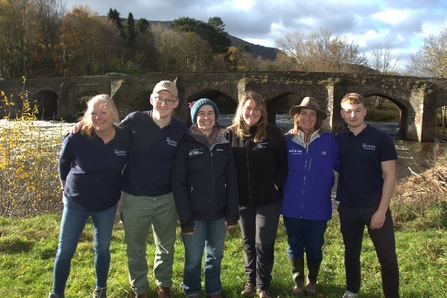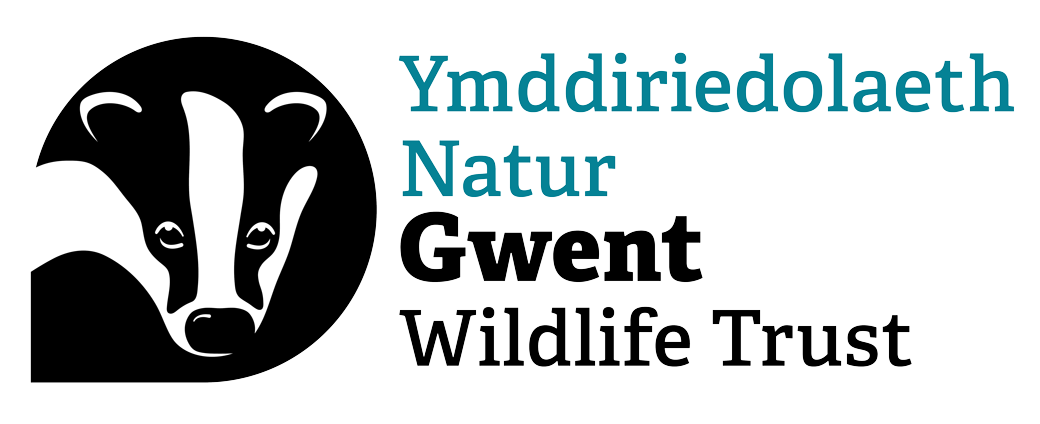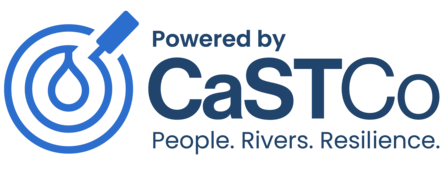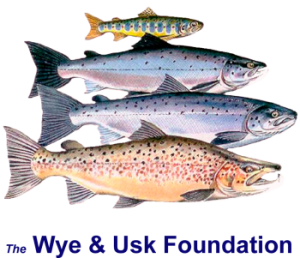River Usk in Usk. photo: Nathalie Nicolaus
Gathering water quality data for the River Usk
Gwent Wildlife Trust takes part in the Catchment Systems Thinking Cooperative project (CaSTCo), collecting water quality data on the River Usk in Gwent.
Project Overview
Only about 16% of rivers in England and 44% of rivers in Wales are in ‘good ecological health’, according to the most recent water quality assessments under the Water Framework Directive. The health of our watercourses is assessed based on a series of parameters including the biological (e.g. fish, invertebrates, and plants), chemical (e.g. nutrients, heavy metals), and physical (e.g. water flow levels, barriers to fish migration) conditions present. However, current approaches to river monitoring are not able to adequately capture environmental trends and identify water quality issues and causes with certainty on a national scale. The data that is available is often not shared, leading to siloed and fragmented decision-making with limited benefits to the environment and society. Data is the most valuable resource to address environmental challenges and ensure environmental protection. In a partnership approach, the project aims to collect higher-density evidence, identify areas of concern, and drive targeted investments where and when they are needed the most.
Catchment Systems Thinking Cooperative (CaSTCo) – a £ 7.1 million partnership project, funded by The Water Services Regulation Authority Ofwat and led by United Utilities and the Rivers Trusts in collaboration with local water companies, academia, and environmental charities aims to change this. The project intends to transform the way environmental data about England’s and Wales’s river catchments is collected, managed, and shared. A national framework of standardized methods, training, and equipment will support the local evidence gathering in eight demonstration river catchments.
We are excited that the River Usk catchment has been selected as the only demonstration catchment in Wales, allowing Gwent Wildlife Trust to be one of the delivering partners of the project.
Local project partners for the River Usk

The GWT & WUF teams in Abergavenny. From left to right: Helen Pruett (WUF), James Hawkins (WUF), Natalie Waller (GWT), Nathalie Nicolaus (GWT), Sian Mercer (WUF), Jamie Carruth (WUF) photo: Martin Cray
Citizen Science
Citizen Science is one of the project's key elements, creating the much-needed evidence base to understand our river catchments better and tackle the environmental challenges we are facing. In the Usk catchment, three citizen science groups are now actively contributing to fill the project database: volunteers from the Wye and Usk Foundation (WUF), Gwent Wildlife Trust (GWT), and the community group Save the River Usk, who have been gathering data in the catchment independently for almost 2 years. Gwent Wildlife Trust supports this endeavor with our own group of trained citizen scientists who gather data specifically for the waterways of the Usk in Gwent.
The project aims to empower local communities to collect robust water quality data which can be shared with decision-makers, allowing evidence-based catchment management decisions
Our aims
Here in Gwent, we benefit from the ecologically valuable watercourses of the lower River Usk, providing important habitats, spawning, and breeding grounds for a huge wealth of wildlife. The Usk is designated as a Special Area of Conservation (SAC), primarily for the presence of important populations of Sea Lamprey Petromyzon marinus, Brook Lamprey Lampetra planeri, River Lamprey Lampetra fluviatilis and Bullhead Cottus gobio. The Usk is one of only four known sites in the UK that support a breeding population of Twaite Shad Alosa fallax. Furthermore, the river is designated for providing important habitat for Otters Lutra lutra in Wales, as well as being a famous spawning ground for Salmon Salmo salar. The Aquatic Buttercup or Water-Crowfoot, once abundant, can still be found in small patches in the lower reaches of the Usk.
Despite its designation in place to protect the river, the Usk is facing severe ecological challenges. We feel that we have a direct responsibility here in Gwent to protect these important habitats and species the river supports.
We aim to
We want to promote and support the gathering of a comprehensive evidence base for the Usk and work together to improve the ecological status of the whole river.
Create our own group of local river guardians acting for our precious waterways and spreading the word in their local communities.
Connect and engage with local people and help them connect with their river, not just along the main course but also in the remoter areas and along the variety of tributary streams.
Train and educate our citizen scientists using the project’s standardized approach, equipment, and data collation tool and combining this with invaluable local knowledge, experience, and passion.
What our citizen scientists are doing
- Take regular water samples from allocated sampling sites
- Take water quality measurements (e.g., nutrients, water temperature) and make regular observations of conservation features and site conditions. This includes recording the presence/absence of algal blooms, invasive species, and sightings of key animal and plant species, such as Otter, Dipper, or Water Crowfoot.
- Highlight and report signs of pollution
If you would like to learn more about the project or discuss the state of the River Usk, please contact Nathalie Nicolaus at nnicolaus@gwentwildlife.org.
















